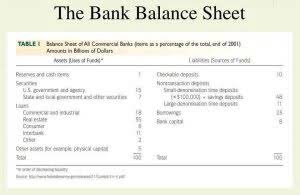
We are your one stop for all services when you have been injured in a car crash. If you work as an independent contractor—for instance, leading group sessions at a recovery home—you may want to break this out into a separate category, like Contract Income. But as it turns out, a quick Google search tells me that if I don’t replace a broken spark plug, contra asset account eventually my engine could stop running.

Increase your profit

Proper bookkeeping means categorizing these expenses accurately to track your spending and identify eligible deductions that reduce your taxable income. Software solutions can simplify this process with built-in expense tracking. TherapyNotes is a comprehensive practice management system that includes features like electronic health records, scheduling, and billing. It also offers a built-in accounting module that allows therapists to track income and expenses, generate financial reports, and streamline their bookkeeping processes. One of the standout features of Zoho Books is its highly customizable interface, allowing therapists to tailor the software to match their specific workflows.
- This includes client payments, insurance reimbursements, and other forms of business income.
- Its user-friendly interface, robust features, and strong integration capabilities make it a recommended choice for therapy practice accounting.
- And it connects with your Accounts Receivable, which reports income you’ve charged for but haven’t collected as cash.
- The main draw of Wave is that its basic accounting services, including invoicing, are completely free—perfect for therapists looking to keep costs low while managing essential financial tasks.
- Once your practice is earning at least $20,000 per year, making bookkeeping entries by hand becomes laborious.
Bookkeeping For Therapists
QuickBooks fits seamlessly into the broader context of accounting services, offering tailored solutions for therapy practices, including tax filings, financial planning, and budgeting. Additionally, virtual accounting services, like those provided by Milestone, can offer further support by managing these tasks remotely, ensuring accuracy and efficiency for busy professionals in the field. Managing finances effectively is a critical aspect of running a successful therapy practice.
Categorize your revenue
While TopNotepad excels in basic financial tasks, it lacks some advanced features found in QuickBooks or Xero, and it doesn’t integrate directly with EMR/EHR systems. However, for smaller practices that don’t require heavy customization or advanced financial reports, TopNotepad is an affordable and effective bookkeeping for therapists solution. For those working with an accountant, QuickBooks formats reports according to industry standards, meaning your financial advisor or bookkeeper can easily navigate and work with your data. As a therapist, managing your finances is just as essential as managing your client relationships.
- Many therapists and coaches get overwhelmed by the money matters that small businesses have to deal with, so they prefer to rely on an accountant or another financial professional to help with their bookkeeping.
- The integration of billing and insurance features ensures that financial records are accurate and current, saving therapists time and effort.
- And often the DIY path can often create more problems then problems solved.
- The insurance claims billing process isn’t always smooth sailing for clinicians, as problems with claims denials or slow reimbursements can slow your revenue cycle.
- Private practice therapists face specific financial challenges and opportunities that are different from other small businesses.
- That could include setting aside savings, diversifying your income streams, or limiting operating expenses.
- Even better, by looking at your statements and comparing them from one month to the next, you may find ways to help your practice make more profit.
- It’s a reliable solution for managing the day-to-day financial needs of a small practice while keeping overhead costs low.
- Detailed reporting and budgeting features empower therapists to make informed financial decisions, set goals, and grow their practice with confidence.
- That way, you don’t cut too close to your own payment deadlines like rent or payroll.
You also have 24/7 access to bookkeeping for therapist your general ledger, financial statements, and other information. There is no law requiring you to do bookkeeping for your therapy practice. But bookkeeping is an integral part of most practice’s day-to-day operations, and the benefits of bookkeeping are so great that whether or not you keep up with bookkeeping could make or break your business. Form a business entity, open a business bank account, and set up a retirement plan.

We see a few mistakes made over and over again such https://www.bookstime.com/ as not running as the most profitable business structure, missing estimated taxes, not tracking expenses and so on. The benefits of working with an accouuntant who specializes in private practice means you’re not paying for a learning curve. We know what to look out for and how to steer you in a more profitable direction from the get go.

